Editorial
Mohammad Ali: The last knockout 1942-2016
Published
10 years agoon
By
Olu Emmanuel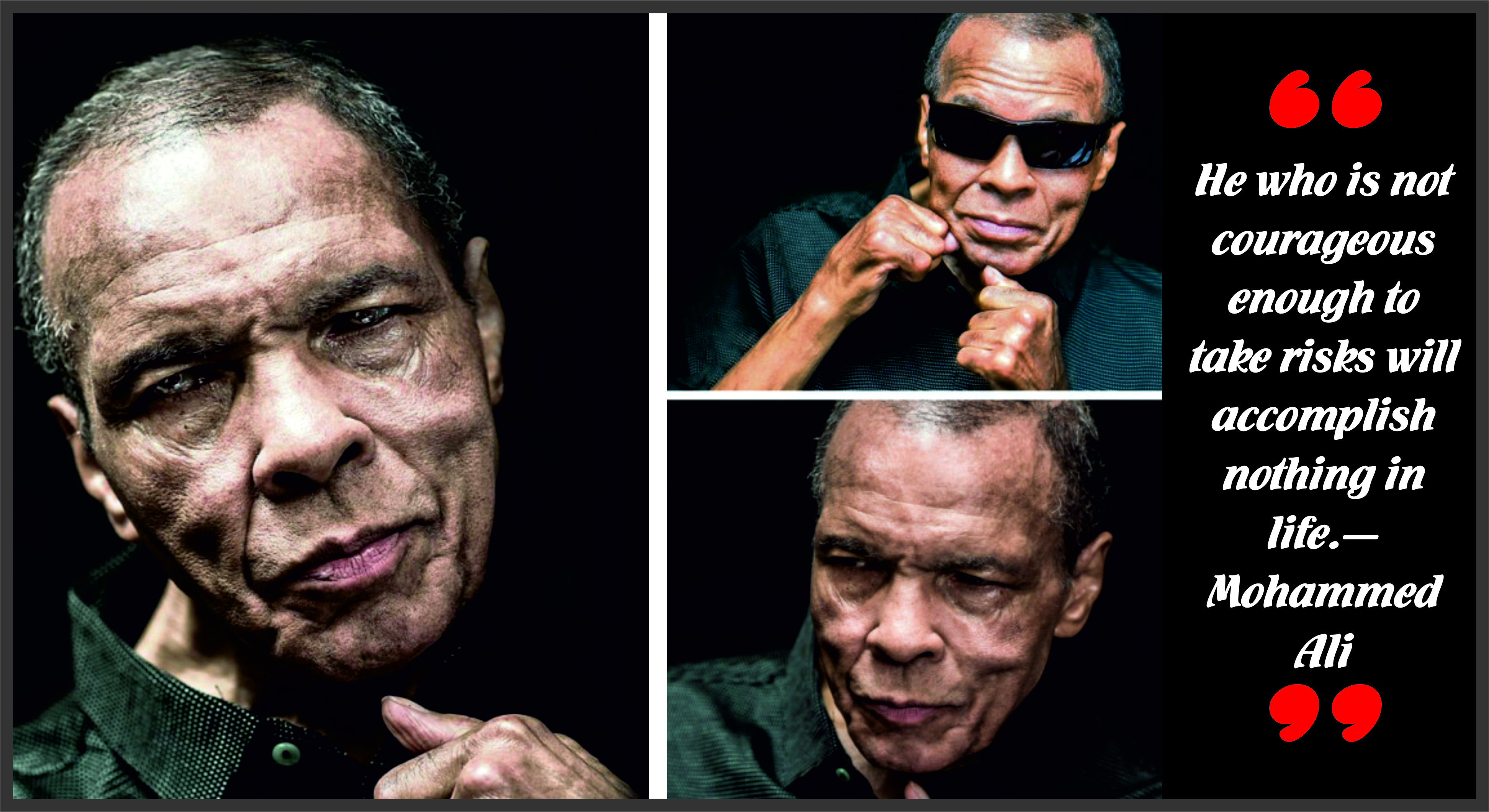
MOHAMMAD Ali, born Cassius Clay on Jan 17, 1942 in Louisville Kentucky to middle class parents has died at the age of 74. Ali died at a Phoenix-area hospital, where he had spent the past few days being treated for respiratory complications. The silver-tongued, Louisville lip who made a career out of boxing started his boxing career when he was 12. He won the Golden Gloves titles before heading to the Rome Olympics in 1960 where he also won a gold medal as a light heavyweight. Today, the world is grappling with the loss of a giant icon whose inimitable antics on and off the boxing arena would not be equal for generations.
How can we go through the threads and textures of an iconic star and get understanding of what gave Ali his vitality? A million word would not be able to trudge through the several heroic moments of his life. The undimmed memory of Ali would span his professional boxing career, his conversion to Islam, his civil right activism, his politics, his sense of fairness, his comedy, his taunts, his speeches and the evening battle with Parkinson’s disease, a progressive neurological condition that slowly robbed him of both his verbal grace and his physical dexterity. The disease eventually discharged the last knock out.
Ali began his professional boxing career shortly after the success of the Rome Olympics. He was supported by Louisville business owners who guaranteed him a 50-50 split in earnings. He later moved to Miami where he worked with the then top trainer, Angelo Dundee and the encouragement to have a shot at the heavyweight title. Ali’s ringing endorsement as a world class fighter came when Sonny Liston agreed to fight him. The challenger geared up for the bout with a litany of insults and rhymes, including the line, “float like a butterfly, sting like a bee.” He beat the fearsome Liston in a sixth-round technical knockout before a stunned Miami Beach crowd. In the ring, Ali proclaimed, “I am the greatest! I am the greatest! I’m the king of the world.” The glory and the power of boxing became Ali’s. He became three time heavyweight boxing champion of the world! Ali successfully defended his title six times, including a rematch with Liston.
ALSO SEE: Amodu, Keshi death: Super Eagles team doctor, Oshiomhole react
The new champion of the world would later reject the imperial overreach embedded in his name -Cassius Clay. He felt a disgusting and dreadful sense of slavery attached to the name, and at 22, he decided to be called Mohammad Ali – bestowed by Nation of Islam founder Elijah Muhammad.
Ali was an anti-establishment showman who transcended borders and barriers, race and religion. His fights against other men became spectacles, but he embodied much greater battles. Failure in the ring may be hard to brood, but success at the wrong thing would not lock Ali in. Cheered on by boxing success and sometimes the decadence of class and racism, Ali would later find comfort in the warm confines of Nation of Islam, an American Muslim sect that advocated racial separation and rejected the pacifism of most civil rights activism. Inspired by Malcolm X, one of the group’s leaders, he converted in 1963. But he kept his new faith a secret until the crown was safely in hand.
He rejected his conscription into the US Army to fight in Vietnam. His revulsion against that war was the immortal words he issued. “My conscience won’t let me go shoot my brother, or some darker people, some poor, hungry people in the mud, for big powerful America, and shoot them for what?” Ali said in an interview. “They never called me nigger. They never lynched me. They didn’t put no dogs on me.” Ali’s outbursts would mirror his experience as the unseen, unwanted and the trampled upon nigger whose identity as a human being was being trampled upon by the larger dominant white majority. “My enemy is the white people, not Vietcong or Chinese or Japanese,” Ali told one white student who challenged his draft avoidance. “You my opposer when I want freedom. You my opposer when I want justice. You my opposer when I want equality. You won’t even stand up for me in America for my religious beliefs and you want me to go somewhere and fight but you won’t even stand up for me here at home.”
Memorable moments of his professional boxing career included the 1974 fight in Zaire dubbed “The Rumble in the Jungle,” a spectacularly hyped bout for which Ali moved to Africa for the summer, followed by crowds of chanting locals wherever he went. There, Ali employed a new boxing strategy dubbed the “rope-a-dope,” in which he goaded Foreman into attacking him, then leaning back into the ropes in a defensive stance and waiting for Foreman to tire. Ali then went on the attack, knocking out Foreman in the eighth round. The manoeuvre has been copied by many other champions since.
ALSO SEE: How Keshi spent his final moments — Brother-in-law
In 1975 was the fight between Ali-Frazier trilogy hyped as the “Thriller in Manila” that is now regarded as one of the best boxing matches of all time. Ali won in a technical knockout in the 15th round. In 1978, Ali was defeated by a young Leon Spinks and quickly took it back. He retired in 1979 at 37 but due to financial crisis returned to the ring in 1980 and was beaten by Larry Holmes. Ali lost again, to Trevor Berbick, the following year. Finally, Ali retired for good.
In 1981, Ali was diagnosed with Parkinson’s disease. In recent years, Ali’s health began to suffer dramatically. There was a death scare in 2013, and last year he was rushed to the hospital after being found unresponsive. He recovered and returned to his new home in Arizona. Divorced three times and the father of nine children one of whom, Laila, become a boxer Ali married his last wife, Yolanda “Lonnie” Williams, in 1986; they lived for a long time in Berrien Springs, Michigan, then moved to Arizona.
In 2005, President George W. Bush honoured Ali with the Presidential Medal of Freedom, and his hometown of Louisville opened the Muhammad Ali Centre, chronicling his life but also as a forum for promoting tolerance and respect. May the soul of this great iconic figure who brought colour, vitality and courage to our lives rest in peace. We celebrate the greatest in death!!!
You may like
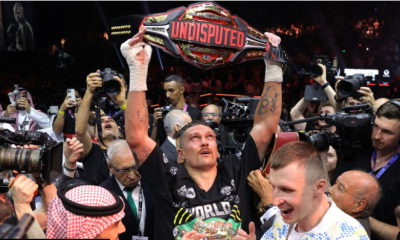

Usyk’s best boxer of this era, says Apochi
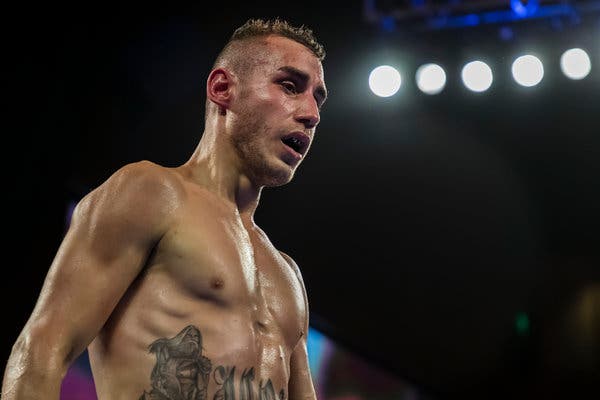

Dadashev dies after boxing injuries sustained against Subriel Matias
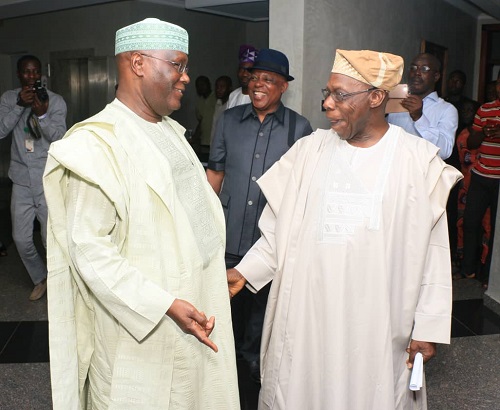

Shocking! See what Obasanjo told Atiku in public today
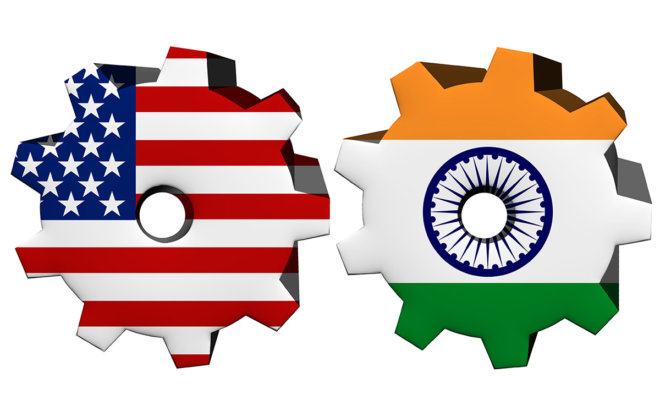

Global trade deepens as India imposes retaliatory tariffs on US products


I am making an impact, says Trump after account was deleted and restored


Retired Footballer, Rio Ferdinand set to launch professional boxing career in Style
Trending

 Entertainment6 days ago
Entertainment6 days agoSinger Simi faces backlash after TikToker admits to false rape allegation

 Entertainment3 days ago
Entertainment3 days agoSimi addresses resurfaced 2012 tweets amid online backlash

 Comments and Issues6 days ago
Comments and Issues6 days agoNigeria’s Declining Oil Output and Soaring Foreign Portfolio Investment Inflow

 Business6 days ago
Business6 days agoPENGASSAN warns Tinubu’s executive order on oil revenues could jeopardise 4,000 jobs

 Health1 week ago
Health1 week agoNanoplastics may disrupt brain cells that control puberty, fertility, study finds

 Comments and Issues6 days ago
Comments and Issues6 days agoEx-prince Andrew’s arrest, lessons for Nigeria

 Editorial Opinion1 week ago
Editorial Opinion1 week agoFirst Lady, Senator Oluremi Tinubu: A call to purpose beyond symbolism

 Health5 days ago
Health5 days agoSCFN, LUTH introduce bone marrow transplants as curative treatment for sickle cell

